After a couple of decades of full-time living, working, and traveling in an RV, we’ve developed lots of RV living tips that we live by every day. Today we’re sharing 21 of them with you, along with links and videos to general information, how-to’s, and step-by-step guides you can follow to make your life living in an RV easier and more enjoyable… whether you’re full-time or just a weekender!
So, without further ado, here are 21 of our favorite RV living tips for new RVers!
- 1) Know How to Dump Your Holding Tanks
- 2) Know How to Set Your Proper RV Tire Pressures (Such an Important RV Living Tip that We Wrote a Book About It!)
- 3) Invest in a Tire Pressure Monitoring System (TPMS)
- 4) Carry Basic Tools on Every Trip
- 5) Get to Know Your RV By Performing These Basic Maintenance Tasks Yourself
- 6) Tackle These Tasks Every Spring
- 7) Learn How to Winterize Your RV
- 8) Learn How to De-Winterize Your RV
- 9) Know How to Deal with Storms In Advance
- 10) Know How to Stay Cool in Summer
- 11) Know How to Stay Warm in Winter
- 12) Learn About RV Fire Safety
- 13) Organize Your Basement Storage (or Any Storage!)
- 14) Learn How to Be a Boondocker!
- 15) Know How to Take Your Best RV Shower (An Absoloute MUST RV Living Tip for Boondockers!)
- 16) Know How to Deal With Prescriptions on the Road
- 17) Switch to LED Lighting (One of Our Very Favorite RV Living Tips!)
- 18) Understand Your RV Battery System
- 19) Understand the Potential for RV Hot Skin
- 20) Know How to Level Your RV the Easy Way
- 21) Check Out Our 10 RV Living Tips & Tricks and Our Top 10 Pro Tips for RV Newbies!
- 22) If You’re an Experienced RVer, What’s Your Best RV Tip for New RVers?
Know How to Dump Your Holding Tanks
The dumping of holding tanks is perhaps the top most intimidating RVing task for new RVers. It’s understandable. No one wants to have to connect to a sewer to dump the icky contents of their holding tanks, especially if there’s a line of other RVers waiting to do the same! The pressure is real – and so is the panic.
To help relieve the intimidation factor, here’s all you need to know about your RV black water tank, and your RV gray water tank.
Also, here’s what to do if your RV toilet stinks, (because it shouldn’t!).
And finally – here’s our step-by-step guide to RV tank dumping. Once you’ve read the posts and watched the video, you’ll practically be a pro! Then all you’ll need to do is take your rig to the nearest dump station and practice.
Since we’re on the topic, here are a few “tools” we highly recommend for easier, cleaner tank dumping:
Our favorite sewer hose:
- RV heavy-duty hose is 15 mils of brown HTS vinyl
- Perfect for the seasonal RVer
After nearly 20 years, we haven’t found a sewer hose we like more, but to give you options, we’ve also got a post on the best RV sewer hoses if you’d like to check that out.
A 4-in-1 sewer adapter is a great thing to have on hand because it allows you to securely connect your RV Sewer hose to any RV park sewer connection or dump station:
- Connects RV sewer hose to dump station
- Patented spin-lock rings for effortless hose connection
You’ll also want a clear adapter elbow so you’ll have a view of what’s coming out of your holding tanks. (Yes, really! You want to see this to ensure the tank is thoroughly dumped… and it’s not as bad as you’re thinking.) And you want to be able to see when the water is running clear:
- Clear RV Sewer Hose Adapter: See-through hose adapter allows you to see when your RV sewer system is clean
- Compatibility: Fits 3-inch diameter RV sewer hoses
If you’re setting up a brand new sewer hose (that doesn’t have built-in connectors), we highly recommend watching our video on the topic. It’s less than two minutes long, but is likely to save you a whole lot of time and frustration:
If you intend to connect to sewers at campgrounds and RV parks for the duration of the time you’re camping, you’ll want to have an RV sewer hose support to give your hose the slope required for a good flow.
The Slunky is our favorite, but you’re welcome to check out the post linked above for other options as well:
- RV SEWER HOSE SUPPORT: Elevated design supports your drainage hose and promotes better draining
- IMPROVED DESIGN: 26% wider and 30% deeper for increased stability and a smoother overall RV experience
And finally, to keep your holding tanks as fresh as possible while also preventing odors from invading your living space, you may wish to take advantage of a holding tank treatment. We use Happy Campers and are very happy with the results:
- Powerful Odor Control: Say goodbye to unpleasant odors with our powerful formula that neutralizes and eliminates foul smells, leaving your RV smelling...
- Effective Waste Digestion: Happy Campers breaks down waste and toilet paper quickly and efficiently, preventing clogs and ensuring smooth tank...
Oh – we almost forgot the most important item of all, don’t forget these. But remember to keep them safely tucked away for use ONLY when dumping.
- PROTECTIVE PVC COATING: Liquid and chemical resistant gloves. Effective against adhesives, detergents, and diluted bases and acids. Gauntlet cuff...
- EXTRA DURABLE: Resistant to cuts, abrasions, punctures and heat; stays flexible even at lower temperatures
If you don’t have a good way to store your sewer hose, be sure to check out our post on RV sewer hose storage options.
Know How to Set Your Proper RV Tire Pressures (Such an Important RV Living Tip that We Wrote a Book About It!)
We’re all aware that when RVing, the safety of our family and our rig is riding on our RV tires. RVs are heavier than cars, SUVs, and trucks, and the weight distribution is also a concern. But for a topic that’s so critical to our safety, there’s very little accurate information out there on how to set proper RV tire pressures.
That’s why we recently wrote an e-Book on the topic of RV tire pressure, and you’re welcome to a copy of it absolutely free. Just subscribe to receive the daily newsletters from our blog and the e-Book is yours. (We’ll only ask for an email address which we won’t share or use for any other purpose.)
You may also wish to check out our posts on taking cold RV tire pressure readings and general tire safety tips.
Invest in a Tire Pressure Monitoring System (TPMS)
When you can afford to do so, invest in an RV TPMS (tire pressure monitoring system). The information provided by a TPMS is priceless. It can help you to avoid issues that can compromise the life of your tires and, more importantly, it can alert you to an issue before a blowout can occur.
You’ll find lots more information on tire pressure monitoring systems, and why they’re so important, here:
Carry Basic Tools on Every Trip
When you travel in an RV, there’s always something that comes up requiring a bit of maintenance or repair. Having a basic RV tool kit on hand is very important and can save you LOTS of money.
Speaking of which…
Get to Know Your RV By Performing These Basic Maintenance Tasks Yourself
As you may or may not know, we’re big on doing our own RV maintenance and repair projects within reason, and there are many maintenance and repair tasks that you can do, too! Not only is this a fantastic way (and perhaps the only way!) to really get to know your RV and how everything works, but it’s a tremendous money-saver.
Tackle These Tasks Every Spring
Over the years (well, actually over the decades!), we’ve developed a spring cleaning and maintenance routine that works really well for us. You may like to adopt some of our RV spring cleaning tasks as well, simply because they’re very helpful to the process of keeping your RV in excellent shape.
Our rig is a good example because it’s a 2005 and honestly, based on its current appearance and performance, you might think it’s just a few years old.
Learn How to Winterize Your RV
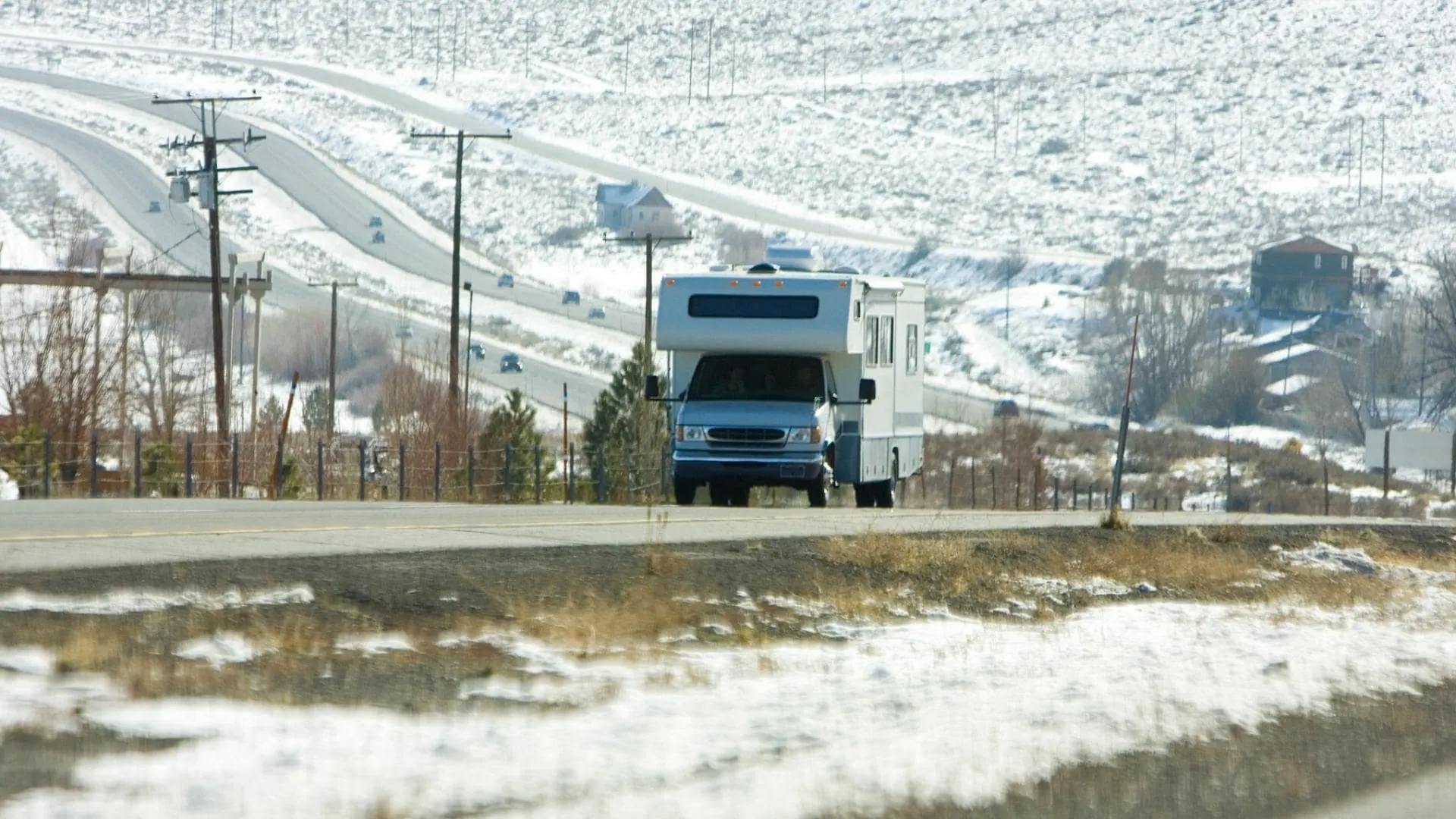
Whether you intend to use your RV in the winter or store it until warmer weather returns, there are some tasks you’ll need to tend to in order to prepare for cold temperatures.
If you live or travel in a climate that gets cold in the winter, you’ll need to learn how to winterize your RV’s plumbing. There are a couple of perfectly acceptable ways of doing it: you can use RV antifreeze (see more details in our post entitled, “Is RV Antifreeze Toxic?”), or you can winterize your RV with an air compressor.
If you’d like to compare the two methods, see our post on blowing out RV water lines vs. antifreeze.
Be sure to also check out our post on RV winterizing tips to help you to avoid some common mistakes that can be costly, even though they’re easy to avoid.
Learn How to De-Winterize Your RV
On the other side of winter, the happier task you’ll want to learn is how to de-winterize your RV as you prepare for the new warm-weather camping season.
Know How to Deal with Storms In Advance
Weather is inevitable and it’s something we can’t control. But knowing how to deal with storms ahead of time is important because learning how to stay safe in a storm isn’t something you want to learn on the fly or by trial & error.
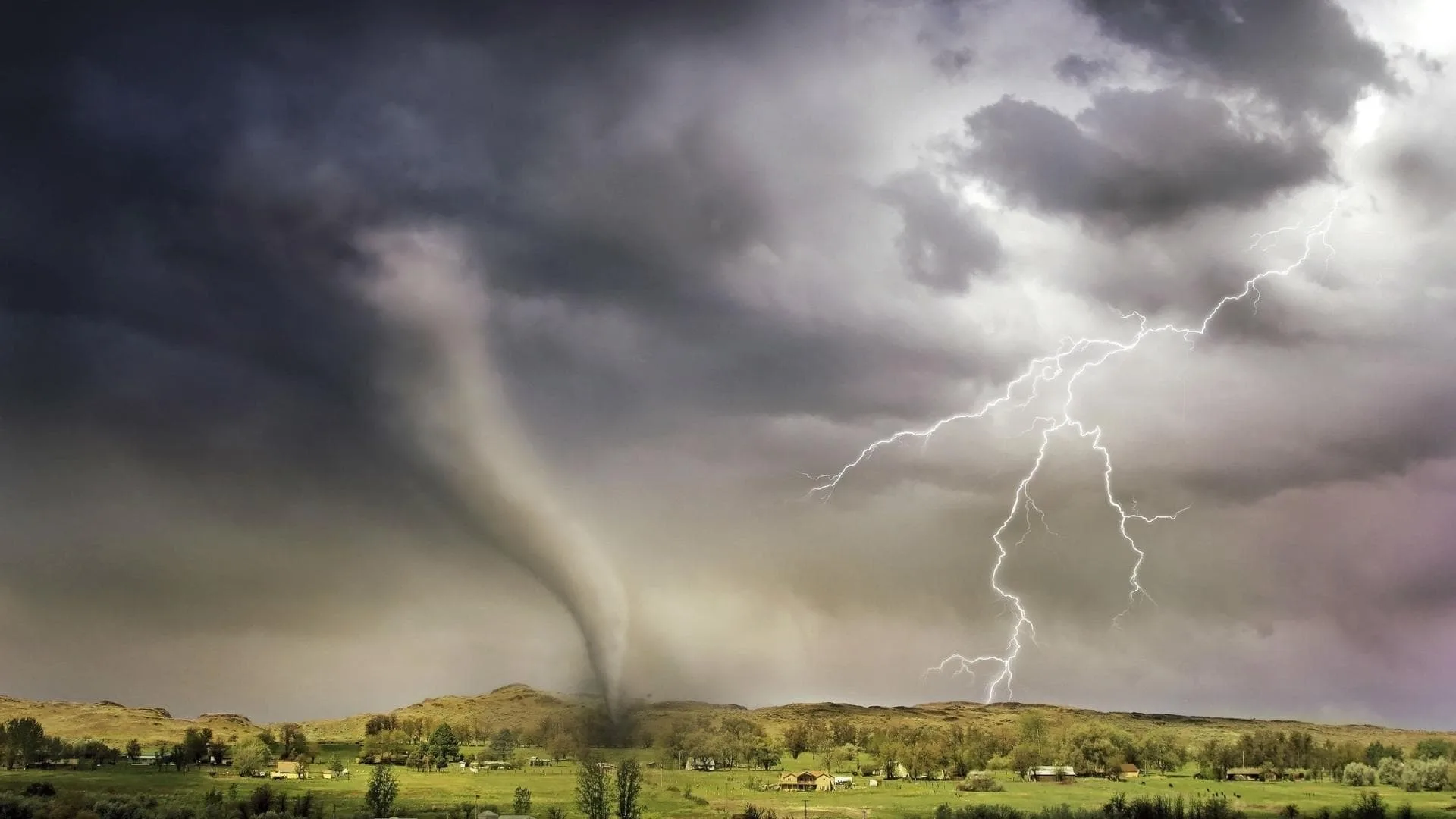
Being prepared for storms well in advance of the adverse weather pattern coming your way is very important, especially when you’re in an RV.
Our post “How Safe Is an RV In a Lightning Storm?” has lots of good information for you. And if you’re interested in having an RV weather station handy, you’re welcome to check out that post as well.
Know How to Stay Cool in Summer
When you’re RVing in the dog days of summer, knowing how to stay cool is a priority. We’ve got lots of information on how to keep your RV cool in summer that you’ll want to check out.
And if you’re able to run your AC but it isn’t cooling well, see our post on what to do if your RV AC is not cooling.
Know How to Stay Warm in Winter
Interested in winter camping? Fantastic! Winter camping can be lots of fun as long as your RV stays nice and cozy. But even if you didn’t intentionally head to the cold, you could still encounter some freezing temps while you’re traveling. Don’t worry, though. We’ve got lots of posts that may be very helpful.
First, you may want to read our post on winter RV living, and if you intend to do some winter RVing in freezing weather, our cold climate RV survival tips are sure to come in handy.
And if you happen to find yourself in a situation where your RV furnace is not working, we’ve got you covered there. If your RV has a propane furnace, you may want to familiarize yourself with how these work by looking through our post, “How Does an RV Furnace Work?”, because it may be very helpful to you should you need to troubleshoot an issue.
Learn About RV Fire Safety
Propane appliances onboard an RV often make people nervous, and that’s okay. A healthy respect for propane is a good thing. But understanding your propane appliances and having a good feel for RV fire safety will help to give you confidence and keep you and your family safe while you enjoy your home-on-wheels.
Organize Your Basement Storage (or Any Storage!)
Whether an RV is your full-time home and office, or you’re just hitting the road for a weekend of fun, you’ve gotta get pretty creative with organization. After all, there’s only so much room to store all the stuff of life (and work) even on a 43-foot rig.
No matter what size rig you’ve got, organization is key in an RV.
We’ve got some great basement storage, but remembering where something was when we wanted it proved to be frustrating at times. So, over time we developed a way to organize our stuff that works really well for us, and it may work for you, too. To find out, have a look at our post on RV basement storage ideas.
Learn How to Be a Boondocker!
This just may be our favorite tip for new RVers. Why? Because we’ve experienced so many incredible wonders of nature and we’ve had so many amazing camping experiences – mostly for FREE – simply because we learned how to be boondockers.
And now – boondocking is far and away our favorite way to camp. We encourage everyone to try boondocking because it opens up so many awesome places and experiences and it makes RVing so much more affordable.
We also understand that the idea of boondocking is a bit intimidating if you’ve never done it. That’s why we wrote a post on boondocking for newbies, and we created a video illustrating how you can learn to break your cord addiction slowly:
We’ve also got a host of boondocking tips as well as a post on the 11 best ways to find RV boondocking spots!
If you’re the owner of a Class A RV and you think you can’t boondock in a big rig, think again! We do it all the time! Have a look at our complete guide to Class A RV boondocking, and give it a shot! (You can even practice right in your own yard if you want!) We really believe you’ll love it.
Know How to Take Your Best RV Shower (An Absoloute MUST RV Living Tip for Boondockers!)
When you’re camping, the ability to take a nice hot shower at the end of the day is a real treat. If you use your RV shower daily as we do, or at all, you’ll appreciate our post on how to take an awesome RV shower. It’s full of tips on how to take a nice comfortable shower in your rig and how to manage your showering experience overall.
If your RV shower’s water pressure is less than desirable, we’ve got a few ideas for you, complete with links to posts on each topic.
If you’ve got low water pressure in your RV in general, check that post out because it may be an issue related to more than just your shower.
However, if you’re experiencing a less than invigorating shower in particular, your RV shower head could be clogged, or you could simply use a new showerhead. Many RV’s come with showerheads that are very basic, and making this one minor upgrade could make all the difference in the world. Check out our post on the 5 best RV showerheads for more information.
Many RVs have outdoor showers that are very useful for things like cleaning mud off of hiking shoes or bike tires, washing sand off the kids or beach chairs, or cleaning four paws before your best friend hops back into the rig. But your RV outdoor shower can also be a great way for YOU to clean up!
If you don’t have an outdoor shower but are interested in installing one, check out these DIY RV outdoor shower kits.
Know How to Deal With Prescriptions on the Road
Whether you take prescriptions regularly, or you find yourself in need of a new prescription while you’re traveling, knowing how to get prescriptions when traveling is very important.
Be sure to take a look at the deets in that post before heading out on a long road trip, because there may be things you need to take care of in advance to make the process easy once you’re on the road.
Switch to LED Lighting (One of Our Very Favorite RV Living Tips!)
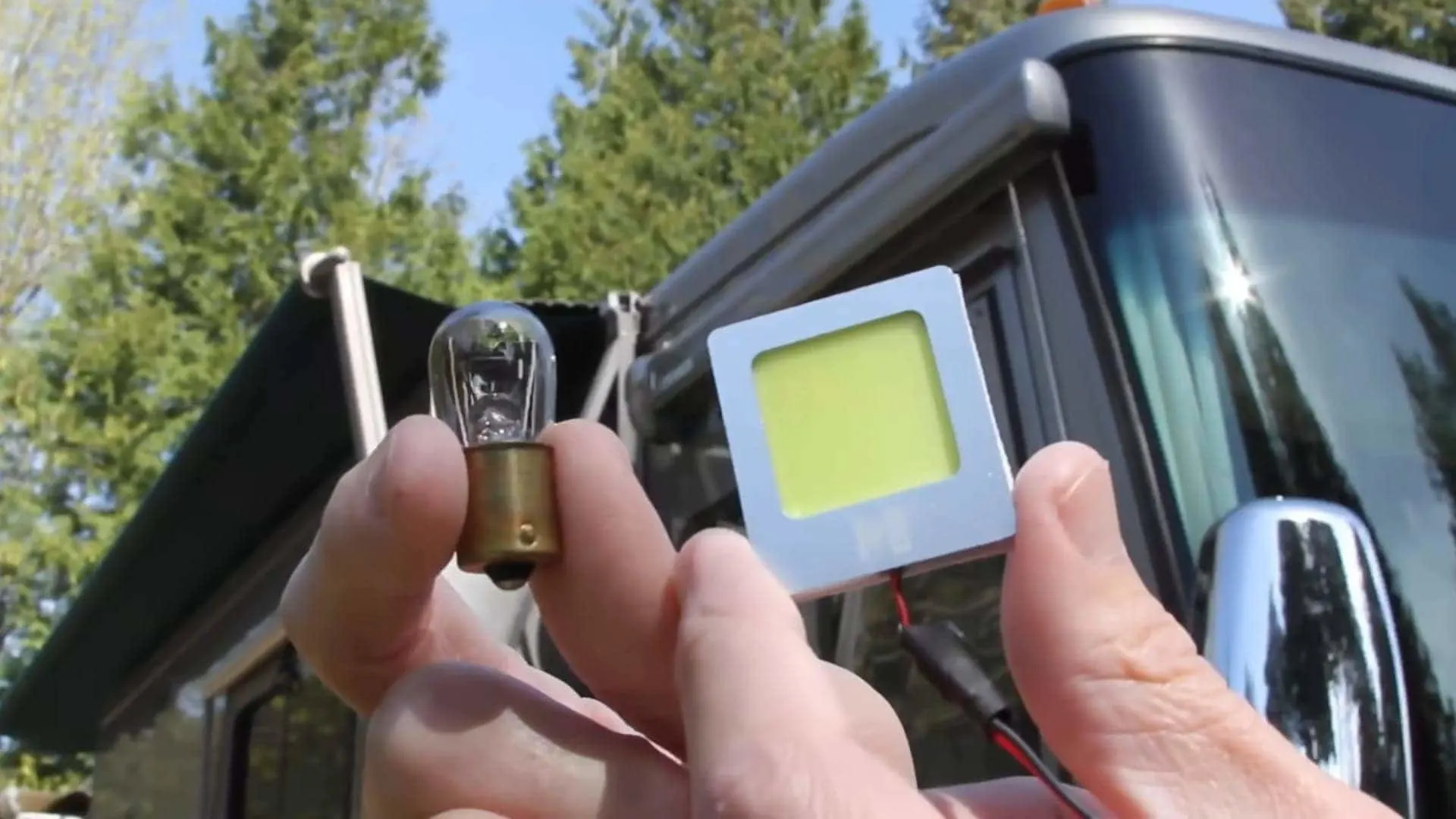
One of the most valuable upgrades you can make to your RV – and one of the easiest – is switching from traditional light bulbs to high-quality LEDs. They’ll not only save you money in the long run, but they’ll save power, something that’s always at a premium for RVers.
One of the very first DIY projects many new RVers take on is the switch to LED lighting throughout their rig. Not only is it an easy project, but it’s among the most valuable you can make. Over time making this switch will not only save you money but lots and lots of power which is always at a premium for RVers, especially when we’re boondocking.
To make it even easier, we’ve got the complete guide to 12-volt LED lights for RVs right at your fingertips.
Understand Your RV Battery System
In time you’re likely to find that your RV’s battery system is one of the coolest things about your RV. It allows you to camp literally anywhere you can drive your rig, while still having the luxury of electricity. And having power anywhere is one of our favorite RV living tips!
No matter how far off the grid you go, you can still run your lights at night, charge your devices, or relax to some entertainment in the way of music, movies, or our favorite show, The RVers! ????
You can also run certain appliances including your RV water pump so you can shower and cook out there in the boondocks.
An RV battery monitor can help to keep you abreast of how much power you’re using and how much you’ve got left. If you don’t happen to have one, check out our post on the best RV battery monitors.
To understand how your 12V battery(ies) can power your 120V AC appliances, see our post entitled, “What Is an RV Inverter?”
To keep those batteries healthy and ready to provide power when you need it, an RV battery disconnect switch may be in order. In fact, if you’re battery isn’t performing, have a look through our post, “Why Does My RV Battery Keep Dying?”
To browse through all of our posts on matters related to batteries and your RV electrical system, click here.
Understand the Potential for RV Hot Skin
Here’s an RV living tip that rarely gets talked about but can be absolutely critical. While rare, the potential for RV hot skin is real and it can lead to electrocution. It can happen and it has happened. We’re not including it to scare you, but only to make you aware of the possibility, how to recognize the symptoms should it happen, and how to avoid it.
Knowing what RV hot skin is and how to avoid it is simply good preparation for RVers.
Know How to Level Your RV the Easy Way
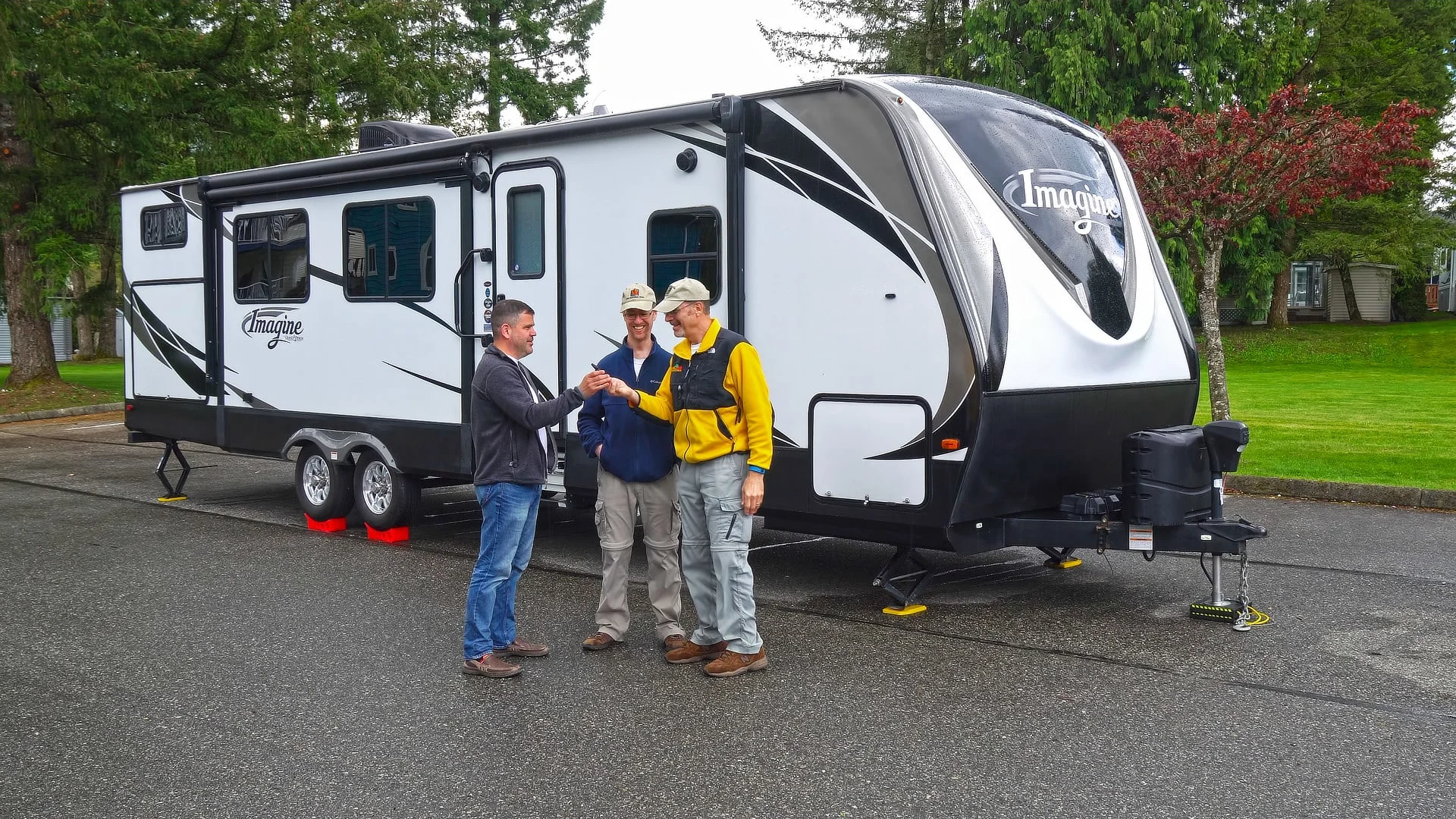
Whether you’ve got a Class B camper van, a Class A motorhome, or a travel trailer, you’ve gotta know how to level your rig…for lots of important reasons. The ability to do it the easy way is a game-changer.
Getting your RV level means that you can walk, lounge, and sleep comfortably in your RV. It also means that the water doesn’t pool up in one corner of your shower and your appliances work properly. Getting your RV level is more important than you may think, but it can be a frustrating process.
Over the years we’ve come to rely on a method of leveling our rig the easy way – perfectly level, the first time, every time. You can check out our post on our RV leveling system to learn more about it.
Check Out Our 10 RV Living Tips & Tricks and Our Top 10 Pro Tips for RV Newbies!
And finally, we invite you to take a look at a couple of other very helpful posts that’ll give you many more RV living tips. Slide on over to our post offering 10 RV tips and tricks all RVers should know and our post full of pro tips laid out especially for RV newbies. You may see some familiar advice in those posts, as well as some brand new tips.
If You’re an Experienced RVer, What’s Your Best RV Tip for New RVers?
If you’re an experienced RVer, use the comments section to shout out any hot tips that you have to offer to our fellow RVers who are just getting started!
Geek Out with Us Every Week
Like these RV living tips?! Join our newsletter to learn about all things RV-related. Every week we offer free tips, tricks, product reviews, and more to our online community of RVers. So, whether this is your first time on the road or you’re a seasoned expert, we’d love for you to geek out with us!





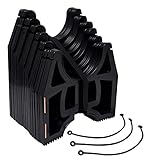


Stan
Monday 22nd of May 2023
Tips: If you’re new to camping, or to the rig, camp out in the driveway (cooking and everything) for a couple of nights to see what you really need. Read the manuals and carry the tools - if you’re not handy, RVing will be anxious and expensive. Going with friends makes more fun, and if they are more knowledgeable, all the better!